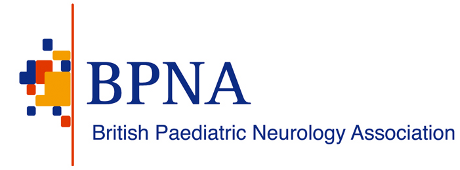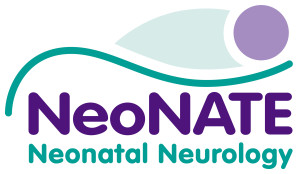We would really like to encourage medical students and junior doctors to consider training in paediatric neurology. It is a rewarding and fascinating speciality! We have produced information for you according to where you are in your training and we have highlighted some thoughts from current paediatric neurology Grid trainees training in the UK on why they enjoy the specialty and the best parts of their training:
Recent quotes from Paediatric Neurology Grid trainees
"Learning is actively encouraged and the BPNA is a rich source of learning and information. There is ample opportunity to discuss cases among trainees and seek advice on practical aspects of training whenR needed"
"Paeds neurology! - The distance learning programme is great and in addition to the clinical experience means that I feel that I have a grounding"
"Opportunity to finally focus on what interest me the most"
"The subject - so interesting and a really broad range of sub specialities"
"The network of paediatric neurologists within the UK is fantastic and the learning opportunities are vast"
The Royal College of Paediatrics Specialty Advisory Committee (CSAC) for paediatric neurology and the BPNA support training in paediatric neurology in the UK. At present, those wishing to train in paediatric neurology complete 5-years of run through training in paediatrics and then apply centrally for grid training in neurology. Those successfully completing grid training will receive a Certificate of Completion of Training (CCT) in paediatrics and a subspecialty entry onto the GMC register in paediatric neurology.
The following information includes links to various useful sites. If you discover any other potentially useful articles or sites, please email the National Training Advisor (
training@bpna.org.uk).
Applying to the Paediatric Neurology National Grid
Download advice from the National Training Advisor on applying to the National Training Grid.
We have produced a supporting video by the BPNA Chair and Deputy Chair of the Trainees' Special Interest Group below on how to produce a Grid Written Application. Please find the accompanying slides to go with the video here.
We have also recorded a webinar in November 2020 to support Grid applicants who have been accepted for interview on insights into how best to prepare. Book through here to receive the video link or contact philip.levine@bpna.org.uk
Paediatric Neurology Curriculum
The RCPCH has produced a new curriculum to support paediatric training: RCPCH Progress, launched August 2018. There are learning outcomes (LO) and key capabilities (KC) that must be achieved at each 'level' of training. Grid trainees in neurology must acquire the LO and KC outlined in the
'generic' level 3 syllabus as well as the specialty LO and KC outlined in the level 3
paediatric neurology syllabus.
The Neurology Progress syllabus provides an overview of the elements required to train in paediatric neurology, but more detailed information is available in the
BPNA/CSAC Neurology Training Guide regarding the specific knowledge and skills required as a Consultant Paediatric Neurologist in the three core diagnostic disciplines:
- Neuroradiology
- Neurophysiology
- Neurogenetics
and the 11 neurology subspecialties:
- Epilepsy
- Acquired brain injury and neurorehabilitation
- Neurovascular disorders
- Movement disorders
- Neuroinflammatory and demyelinating disorders
- Neuro-oncology
- Neuromuscular disorders
- Neurodegenerative and neurometabolic disorders
- Neonatal neurology
- Headache disorders
- Medically unexplained functional disorders
The only 'formal' level 3 assessment is the START assessment, usually done in the penultimate year of training. The assessment is 'formative' and seeks to highlight aspects of training that need to be addressed before CCT. Broadly 50% of the assessment relates to generic level 3 competencies and 50% relates to subspecialty training. START is a mandatory aspect of level 3 training and trainees seeking entry onto the specialist register by means of CCT award, must undertake the assessment as part of their training.
Monitoring Training Progress
British paediatric neurologists benefit from an excellent network across the UK, managed by the BPNA. There is an education lead in every paediatric neurology centre who keeps an eye on both the quality of the training programme as well as helping individual trainees progress optimally.
In addition, all trainees, including those who are 'out of programme', and those considering a career in paediatric neurology are able to request a face to face interview with CSAC representatives at the BPNA trainees' meeting, held in May each year. This is particularly important for 'active' grid trainees as the interview will form the basis of their CSAC progression report, required before the annual ARCP review. If trainees cannot attend the trainees' meeting, it is usually possible to offer additional interview slots during the annual BPNA conference in January.
The face to face meetings have been warmly welcomed by trainees as neurology is a very broad subject and it has been helpful to reflect on progress and identify learning objectives for the following year. It is also an opporutnity to celebrate achievements and highlight any barriers to training. Traines are asked to complete a pre-interview questionnaire with their education supervisor and this, together with their e-portfolio, is reviewed at the interview. Subsequent to the meeting, a report is issued to the trainee, their supervisor and TPD or head of school. Concerns about training issues are raised with relevant parties and the CSAC are happy to work with the local team to try and resolve any difficulties/barriers that are affective progress with grid training.
Mentoring
The BPNA has a voluntary mentoring process which is available to trainees in their last year of training. We aim to help them launch confidently into their consultant career. Please
Login to the BPNA for further information.
Doctors who have trained outside the EU
Doctors who wish to practice as Paediatric Neurologists in the UK but who have not completed a General Medical Council (GMC) approved programme (for example because they trained outside the EU) may apply to the GMC for entry onto the Specialist Register with a Certificate of Eligibility for Specialist Registration (CESR) through the specialty equivalence route. Details of what is required is available at GMC CESR scheme.
The CSAC can review UK and other training that has been done outside the grid and, if they deem training to be equivalent to that of a UK grid trainee, they can issue a certificate to confirm this. This will not lead to subspecialty entry on the GMC register, but can be helpful when applying for consultant jobs that specify a candidate must have "grid training in neurology or equivalent". Please contact
training@bpna.org.uk.



